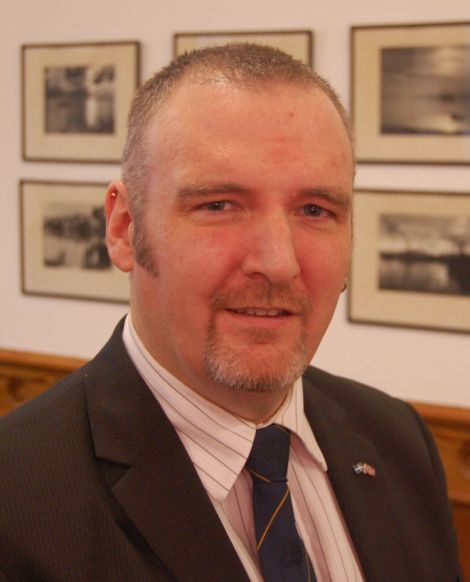News / At the periphery of the periphery
SHETLAND Islands Council has failed in its campaign to convince the European Union that the isles should continue to benefit from regional aid despite its booming economy.
Political leader Gary Robinson had been in Brussels on several occasions this year to make the point that as one of the remotest island communities in Europe Shetland was a special case.
Only in April this year, Robinson and Scottish LibDem MEP George Lyon emerged in a confident mood from a meeting with the EU’s commissioner Johannes Hahn.
However, it emerged on Monday that the isles will now be excluded from a list of assisted areas as of July 2014, because the isles GDP is above the EU average, and significantly higher than that of the highland and islands region.
The development means that the SIC will now only be able to provide financial support for business investments at a much lower level; however these restrictions will not apply in agriculture, fisheries, aquaculture or transport sectors.
Robinson said although he was bitterly disappointed by the decision the campaign for acknowledging Shetland’s special case would continue.
“We took Shetland’s case to the highest level and explained the economic development challenges associated with operating businesses in peripheral and geographically challenged areas.
“We explained how the council, over the past decades, has used its resources under regional aid to support business investment and to create jobs in remote areas where there are limited employment opportunities.
“It was stressed to the commission officials that using criteria such as GDP and unemployment rates does not take account of economic realities of operating business in the periphery.”
Shetland’s case was supported by both the Scottish and the UK governments, parliamentarians in Edinburgh, London and Brussels as well as the Conference of Peripheral Maritime Regions (CMPR).
Become a member of Shetland News
The political leader added: “We’ll continue to make the case to the EU for better acknowledgement of the geographic challenges of remote island communities and the need to take account of factors such as distance from mainland markets, all of which add to the high cost of living and operating a business in Shetland.”
Jean-Didier Hache of CPMR said: “The CPMR islands commission has repeatedly drawn the attention of the EU institutions to the fact that allowing more flexible state aid rules in islands, especially in small island regions such as Shetland, was not going to disturb the functioning of the internal market.”
Shetland still remains eligible to receive EU funding as part of the H&I’s transitional area for structural funds for 2014-20, and many of the other EU-wide programmes which will come on stream from 2014 onwards.
Local MSP Tavish Scott said: “I am very disappointed that Europe doesn’t recognise the distance from markets that Shetland businesses face.
“The islands are on the periphery of the periphery and yet, astonishingly, Shetland doesn’t qualify for European regional aid.
“I will work with the Shetland Islands Council in exploring the potential for reversing this decision as these funds have played an important part in building the Shetland economy in the past.”
Become a member of Shetland News
Shetland News is asking its many readers to consider paying for membership to get additional features and services: -
- Remove non-local ads;
- Bookmark posts to read later;
- Exclusive curated weekly newsletter;
- Hide membership messages;
- Comments open for discussion.
If you appreciate what we do and feel strongly about impartial local journalism, then please become a member of Shetland News by either making a single payment, or setting up a monthly, quarterly or yearly subscription.




























































